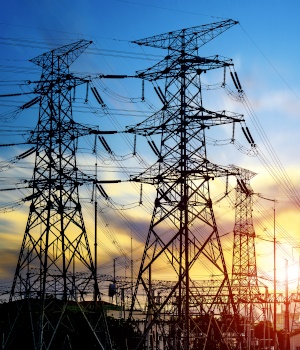
The government needs to embark on restructuring Eskom to cut costs. If not, it will have to bail out the embattled power utility again in the future.
This is because Eskom faces a R150 billion shortfall in its funding over the next three years.
Last week, the National Energy Regulator of SA (Nersa) granted Eskom R665 billion in revenue over three years.
This fell R119 billion short of the R784 billion that Eskom was seeking from its application for higher power prices and in its bid to recover revenue shortfalls.
Nersa’s decision comes after Finance Minister Tito Mboweni’s package to Eskom, announced during his budget speech last month. He gave Eskom a R69 billion bailout to cover debt servicing costs as well as pay off debt over the next three fiscal years.
Eskom had been seeking a bailout that would have cut its debt by R100 billion.
The power utility wanted R884 billion from Nersa and the government combined, but instead, got a total of R734 billion – a shortfall of R150 billion on what it was seeking.
At the same time, the arrear debt owed to Eskom by municipalities and residents of Soweto residents is rising fast from the current estimated figure of R35 billion, with neither Eskom management nor politicians doing anything to tackle the issue.
This week’s power tariffs are likely to increase the municipal default rate as more people become unable to afford electricity and end up switching to other options, including illegal connections.
Researchers at London-based consultancy Capital Economics said the smaller-than-requested tariff hikes would only add to Eskom’s financial troubles. While acknowledging the bailout handed to Eskom, they said the utility still needed either a big injection of capital or a sharp rise in tariffs.
Nedbank economist Isaac Matshego said it was vital that the government, as owner of Eskom, stabilise the power utility as soon as possible.
“We are paying for our past sins,” he said.
Eskom has been wracked by corruption and mismanagement for years, especially since 2007 when it started building new power stations – which are well over budget, still not complete and do not operate properly.
“The government needs to move swiftly and aggressively to restructure Eskom,” Matshego said. This, in order to bring down its cost base, given the R150 billion gap.
However, with strong opposition voiced by trade unions to President Cyril Ramaphosa’s plan to split Eskom into three units covering generation, transmission and distribution, any restructuring was only likely to happen after the May 8 elections, Matshego said.
However, he added, “tough measures need to be put in place at Eskom”.
Iraj Abedian, chief economist at Pan-African Investment and Research Services, said Mboweni had made it clear that the government had no further scope for more money beyond R69 billion over the next three years, and then another R23 billion a year over the following seven years.
Eskom’s funding shortfall could ultimately have a negative effect on the government’s credit rating, he added.
One of the biggest problems with Eskom was it could no longer provide South Africa with the power it needed, Abedian said.
So, given the position in which Eskom found itself, it had to be restructured.
“There is no other option,” Abedian said. “This is no longer an ideological debate.”
Earlier this month, S&P Global warned that Eskom remained at risk of not securing sufficient liquidity to meet all its funding requirements in the next six months. The agency expressed concern that 65% of Eskom’s borrowing requirements for the year ending March 2020 was not yet committed.
Moody’s will issue its latest assessment of the government’s ability to repay its debt on March 29.
The shortfall in the power utility’s funding requirements is likely to feature as a key issue.
Moody’s is the last major credit rating agency to rate South Africa at investment grade.
 |
| ||||||||||||
| |||||||||||||




 Publications
Publications
 Partners
Partners








